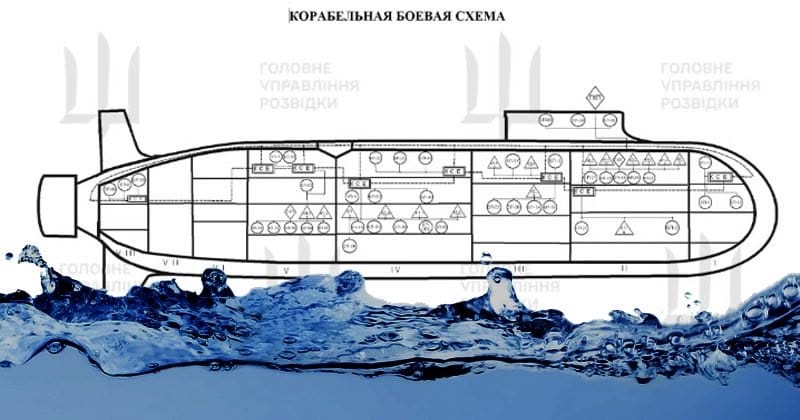
Why is an M&A IT Due Diligence Important?
In today’s fast-paced business world, mergers and acquisitions (M&A) have become a common strategy for companies looking to grow, diversify, or gain a competitive edge. While M&A deals offer a multitude of opportunities, they also come with substantial risks and challenges. One crucial aspect of any successful M&A transaction, often overlooked, is the Information Technology (IT) Due Diligence. In this article, we will explore why IT due diligence is so important in the M&A process and how it can significantly impact the outcome of a deal.
The M&A Landscape
Mergers and acquisitions have been a cornerstone of corporate growth strategies for decades. These transactions can take various forms, including mergers, acquisitions, asset purchases, and joint ventures. Regardless of the specific structure, M&A deals are complex and require meticulous planning and execution.
Successful M&A transactions can offer a range of benefits, such as expanding market reach, gaining access to new technologies, increasing economies of scale, and diversifying product or service portfolios. However, the path to achieving these benefits is often fraught with challenges, risks, and uncertainties. One significant area where these challenges often arise is in the realm of IT.
The Role of IT in Modern Business
Information technology is the backbone of virtually every modern business. IT systems and infrastructure support core business operations, enable communication and collaboration, store critical data, and facilitate decision-making. In essence, IT is the nervous system of an organization, and any disruption or inefficiency in this system can have far-reaching consequences.
In the context of M&A, both the acquiring and target companies typically have their own IT ecosystems, which can vary significantly in terms of technology platforms, processes, and culture. Integrating these IT systems effectively is essential for realizing the full potential of an M&A transaction. This is where IT due diligence comes into play.
What is IT Due Diligence?
IT due diligence is a comprehensive assessment of the IT environment of both the acquiring and target companies in an M&A deal. Its primary purpose is to evaluate the risks, opportunities, and challenges related to IT systems, infrastructure, and operations. IT due diligence encompasses various aspects, including:
- Technology Infrastructure: Assessing the hardware, software, and network infrastructure of both companies to identify compatibility issues and potential upgrades.
- Data and Information Security: Evaluating the security measures in place to protect sensitive data and intellectual property, as well as assessing compliance with regulatory requirements.
- IT Contracts and Agreements: Reviewing existing contracts, licenses, and service level agreements (SLAs) to identify any contractual obligations, potential liabilities, or hidden costs.
- Operational Efficiency: Analyzing IT processes and operations to identify opportunities for optimization and cost savings.
- Cybersecurity: Assessing the cybersecurity posture of both organizations to identify vulnerabilities and potential risks, especially in the context of data breaches and cyberattacks.
- Software and Application Integration: Evaluating the compatibility and integration challenges of software applications used by both companies.
- Talent and Culture: Assessing the IT talent pool and the cultural aspects of the IT departments in both organizations, as a harmonious working environment is crucial for post-merger success.
The Importance of IT Due Diligence
Now, let’s delve into why IT due diligence is so crucial in the M&A process:
- Risk Mitigation
One of the primary objectives of IT due diligence is to identify and assess potential risks associated with the IT systems and operations of both the acquiring and target companies. These risks can range from data breaches and security vulnerabilities to compliance violations and operational inefficiencies. By uncovering these risks early in the due diligence process, organizations can develop strategies to mitigate them effectively. - Cost Assessment
Understanding the IT environment of both companies allows acquirers to estimate the costs associated with integration. This includes hardware and software upgrades, data migration, and potential redundancies in IT staff or infrastructure. Having a clear picture of these costs is essential for accurate financial planning and budgeting during the M&A process. - Integration Planning
Once IT due diligence is complete, organizations can develop a detailed integration plan that addresses technology infrastructure, data consolidation, application integration, and IT staff transition. A well-thought-out integration plan is critical for a smooth transition and minimizing disruption to business operations. - Preserving Business Continuity
IT due diligence also helps in ensuring business continuity during and after the M&A process. By identifying potential risks and vulnerabilities in IT systems, organizations can implement strategies to maintain essential operations and customer service levels throughout the transition. - Maximizing Value
IT due diligence is not just about risk mitigation; it’s also about identifying opportunities for value creation. Acquirers can uncover hidden gems within the target company’s IT ecosystem, such as innovative technologies, talented IT teams, or efficient processes, which can enhance the overall value of the deal. - Regulatory Compliance
In industries subject to strict regulatory oversight, such as finance, healthcare, and pharmaceuticals, non-compliance with IT regulations can result in significant fines and legal consequences. IT due diligence helps organizations identify and address compliance issues before they become costly problems. - Reputation Management
A poorly executed M&A deal that leads to IT disruptions, data breaches, or other IT-related issues can damage an organization’s reputation. Effective IT due diligence and seamless integration help maintain trust among customers, partners, and stakeholders. - Employee Morale and Retention
The IT talent within an organization is often instrumental in its success. Disruptions or uncertainties during an M&A deal can lead to employee morale issues and the departure of key IT personnel. IT due diligence can help organizations address these concerns proactively.
Challenges in IT Due Diligence
While IT due diligence is undeniably crucial; it comes with its own set of challenges:
- Complexity
IT ecosystems are inherently complex, involving numerous interdependent systems and processes. Conducting a thorough assessment can be time-consuming and require specialized expertise. - Integration Risks
Even with comprehensive due diligence, there are no guarantees that the integration of IT systems will be seamless. Unexpected challenges may arise during the post-M&A phase. - Data Privacy
Evaluating data privacy and security is particularly critical, given the increasing importance of personal data protection laws worldwide. Ensuring compliance with these regulations is a complex and ongoing task. - Cultural Integration
The cultural aspects of IT departments are often underestimated. Integrating IT teams with different cultures, work habits, and technologies can be a significant challenge.
Conclusion
In the world of mergers and acquisitions, IT due diligence is not merely an option—it’s a necessity. Failing to assess and address the IT aspects of a deal can lead to costly mistakes, missed opportunities, and even deal failure. By conducting comprehensive IT due diligence, organizations can mitigate risks, identify value-enhancing opportunities, and pave the way for successful integration.
In today’s digital age, where technology plays a central role in business operations, neglecting IT due diligence in M&A is akin to building a house without inspecting its foundation. It may seem fine on the surface, but unseen issues can lead to catastrophic consequences down the line. To ensure the success of M&A transactions, organizations must recognize the importance of IT due diligence and make it an integral part of their strategic planning and execution.
Contact Cyber Defense Advisors to learn more about our M&A IT Due Diligence solutions.





